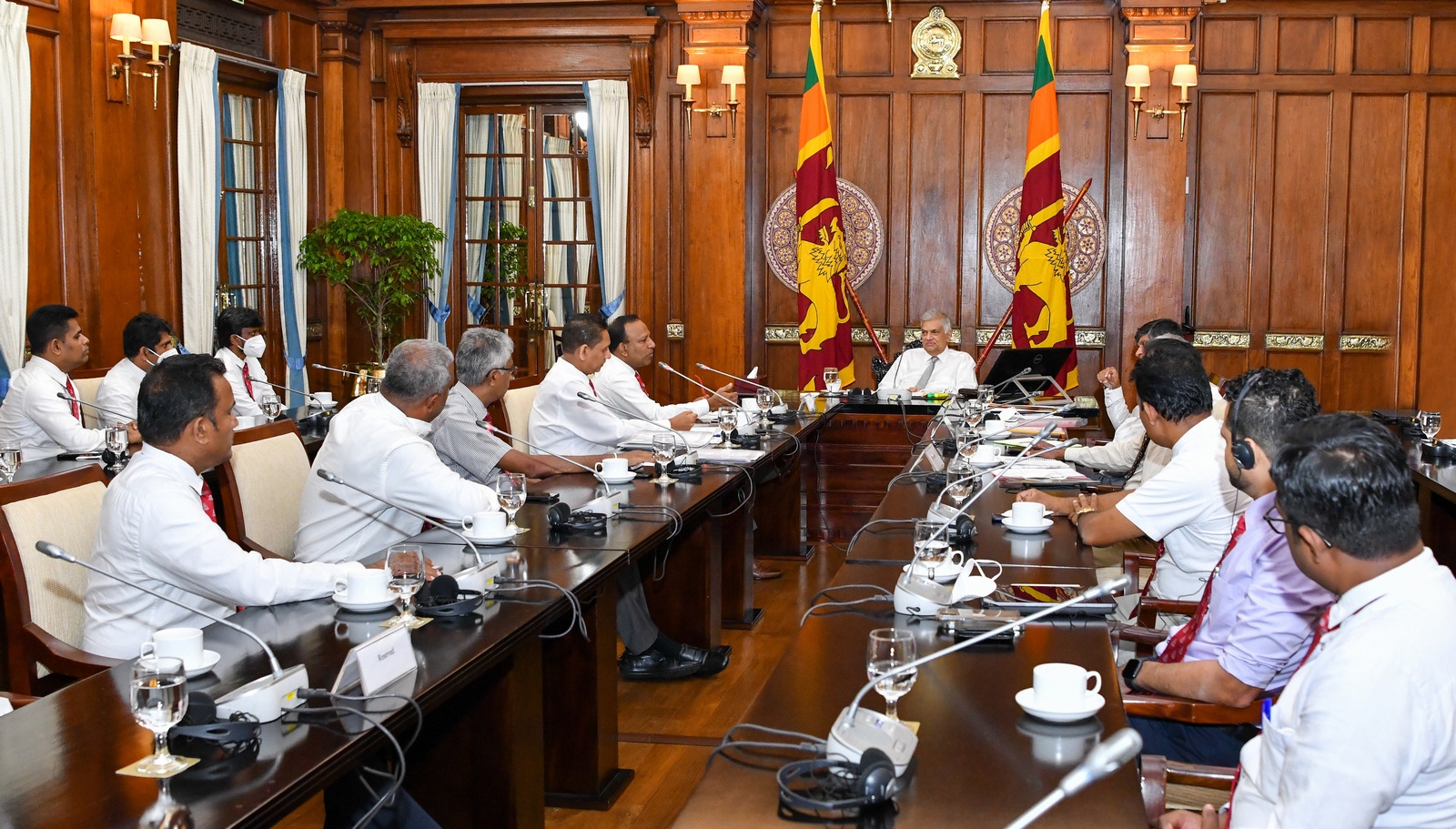The first fuel shipment of China’s Sinopec, which signed a contract to enter the Sri Lankan fuel market, will arrive in the country early next month, State Minister of Power and Energy D. V. Chanaka stated.
Meanwhile, steps will be taken to replace the fuel price formula with a maximum retail price, thereby creating a fuel competitiveness that benefits the country, State Minister D. V. Chanaka said.
Meanwhile, he assured that a Maximum Retail Price (MRP) will be stipulated by the Government to all fuel companies under the price formula from August.
The State Minister also said that it is expected to take a decision regarding the QR code after discussing it with all the parties in the future.
He expressed these views during a press conference themed ‘Collective Path to a Stable Country’ held at the Presidential Media Centre (PMC).
Sinopec’s first fuel shipment expected to arrive in August
- State Minister of Power and Energy D. V. Chanaka
• Maximum Fuel Retail Price (MRP) to be stipulated
• Decision on QR code pending
State Minister of Power and Energy D. V. Chanaka further commented;
The Ministry of Power and Energy was one of the hardest-impacted ministries during the country’s economic crisis. There was an era of oil queues. After President Ranil Wickremesinghe took office, Minister Kanchana Wijesekera took up the challenge of solving the fuel crisis. There were no dollars in the country at that time. Only two of the 28 fuel suppliers registered with the Ceylon Petroleum Corporation offered to provide fuel to the country. Such was the situation then.
The country’s dollar reserves began to stabilize thanks to President Ranil Wickremesinghe’s sound economic policy. On the other hand, in accordance with Minister Kanchana’s management strategy, it was possible to supply fuel to customers in accordance with the quantity of dollars available in the country by using the QR code. The fuel queues started to shorten two or three days after the QR code was implemented. The percentage of fuel delivered by QR code is currently being gradually increased.
As the State Minister, Minister Kanchana assigned me four key duties, including ensuring a consistent flow of fuel and boosting competitiveness. It was decided to establish a fuel procurement program for a year rather than just a few months in order to ensure a steady supply of fuel. Previously, while soliciting bids for fuel, the fuel was purchased based on the amount of room that was available in our warehouses. An effort was made to research the Singaporean system instead. Later, tenders were called in lieu of the conventional procedure on days when the price was the lowest in the world.
Previously, there were no arrangements to maintain buffer reserves. So far, steps have been taken to maintain a reserve of 30,000 litres of fuel including petrol and diesel. We are in charge of additional 60 million dollars in addition to the money needed for daily expenses.
After studying the existing methods in the world, a new method was introduced in this country. Accordingly, we no longer pay any advance. Fuel tankers coming to Sri Lanka should be fully stocked in our warehouses. After that, the necessary purchases for the week are made with the dollars available in the Ceylon Petroleum Corporation. There are several advantages here. Risk fees were completely eliminated. This new system has the potential to save 300 million dollars per year.
We previously only paid late fees. But as of right now for the first time, we have earned 13 million dollars in late fees from fuel companies only in the first half of this year. The first installment of 3 million dollars is being collected before the 18th. The remaining amount of 10 million dollars will be fully recovered from the suppliers.
In order to increase fuel competitiveness, agreements have been reached with three major internationally registered companies. This will increase competition and offer a sound remedy for the current dollar issue. By the first week of next month, a ship of Sinopec Company is scheduled to arrive in Sri Lanka. Sri Lanka signed a contract agreement with Sinopec in May this year, in response to the ongoing foreign exchange crisis.
Until now, the fuel price formula existed only for Ceylon Petroleum Corporation. Instead, steps will be taken to set a maximum retail price using the price formula to affect all companies through this new system. Thus, the Ministry will decide only the maximum retail price in the future. The companies will then be able to provide fuel at a price of their choice subject to the maximum price. This will create competition among fuel companies resulting in reduced fuel prices.





